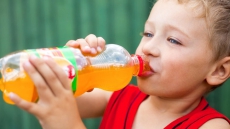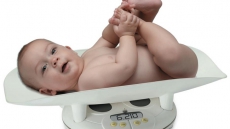Canada is bringing three scientists home from Kailahun, Sierra Leone, a post which the World Health Organization has temporarily closed to investigate the infection of an international medical responder working there.
Meanwhile, the U.S. Centers for Disease Control has revealed it has also evacuated two members of its staff from Kailahun after one was confirmed to have had what is considered low-risk contact with a person who contracted Ebola.
One of the CDC staff members was at the end of a mission and the other was approaching the end of his or her time in the country, a spokesperson for the Atlanta-based agency said.
Tom Skinner said the CDC chartered a plane to bring the two back to the United States because one of them had worked in an office with a person who became sick at Kailahun. Under the CDC's Ebola guidance that is considered a low-risk contact.
The WHO has stated that contacts of known Ebola cases should not travel on commercial aircraft while they are in the incubation period for the disease, 21 days from the time of exposure.
That recommendation, issued when the WHO declared Ebola a public health emergency of international concern on Aug. 8, is aimed at preventing further spread of the virus.
Skinner said the evacuated Americans do not have symptoms of Ebola, but will be monitored until the 21-day period is up.
He noted the CDC remains committed to the fight against Ebola in West Africa. The agency currently has 29 staff members in Sierra Leone, with nine more preparing to be deployed to the country.
The Public Health Agency of Canada has provided no additional information on how it plans to bring the three lab scientists back to this country. If the three had contact with the infected worker or any other Ebola patient, they should not travel on commercial flights. But the agency has not made their status clear.
It has said that none of the three is experiencing any symptoms. All three are in voluntary isolation and will remain so for the full 21-day period.
When it announced it was pulling back the lab scientists, the Public Health Agency said the decision was based on the fact that three people who were at the hotel complex where the Canadians were staying had tested positive for Ebola. The agency said the Canadians had no contact with the sick individuals at the hotel.
"The risk that any of the three individuals is infected is very low," the statement said.
Earlier this week a spokesperson for the Department of Foreign Affairs, Trade and Development said the federal government has been working on plans to repatriate Canadians from the Ebola zone of West Africa, in case the need arose.
"Considerable planning has been undertaken in the event that a Canadian becomes sick abroad and asks for assistance with repatriation," spokesperson Beatrice Fenelon said in an emailed response to questions.
"DFATD has identified commercial medical air evacuation companies to fly a sick person home to Canada and has been in discussion with provincial health ministries about where possible patients could safely receive care."
Fenelon said Canada has been working with international partners, including Medecins Sans Frontieres (Doctors Without Borders), on how best to address the Ebola situation.
"We are seeking to ensure that the global Ebola strategy (including factors such as medevac issues) are handled in as co-ordinated and effective a manner as possible, so as to provide clarity regarding options should health-care workers become infected in the course of their duties."
A growing number of airlines have suspended flights to the countries battling the outbreak — Guinea, Sierra Leone and Liberia.
The UN and the WHO have said the scarcity of flights into the countries is impeding their ability to ramp up the response to the outbreak and is hindering the flow of medical equipment and other essential aid.
The international health-care worker who contracted Ebola at Kailahun has been identified as a Senegalese epidemiologist, working for the WHO through its Global Outbreak Alert and Response Network — known as GOARN.
He was flown to Hamburg, Germany, on Wednesday and will receive care there





